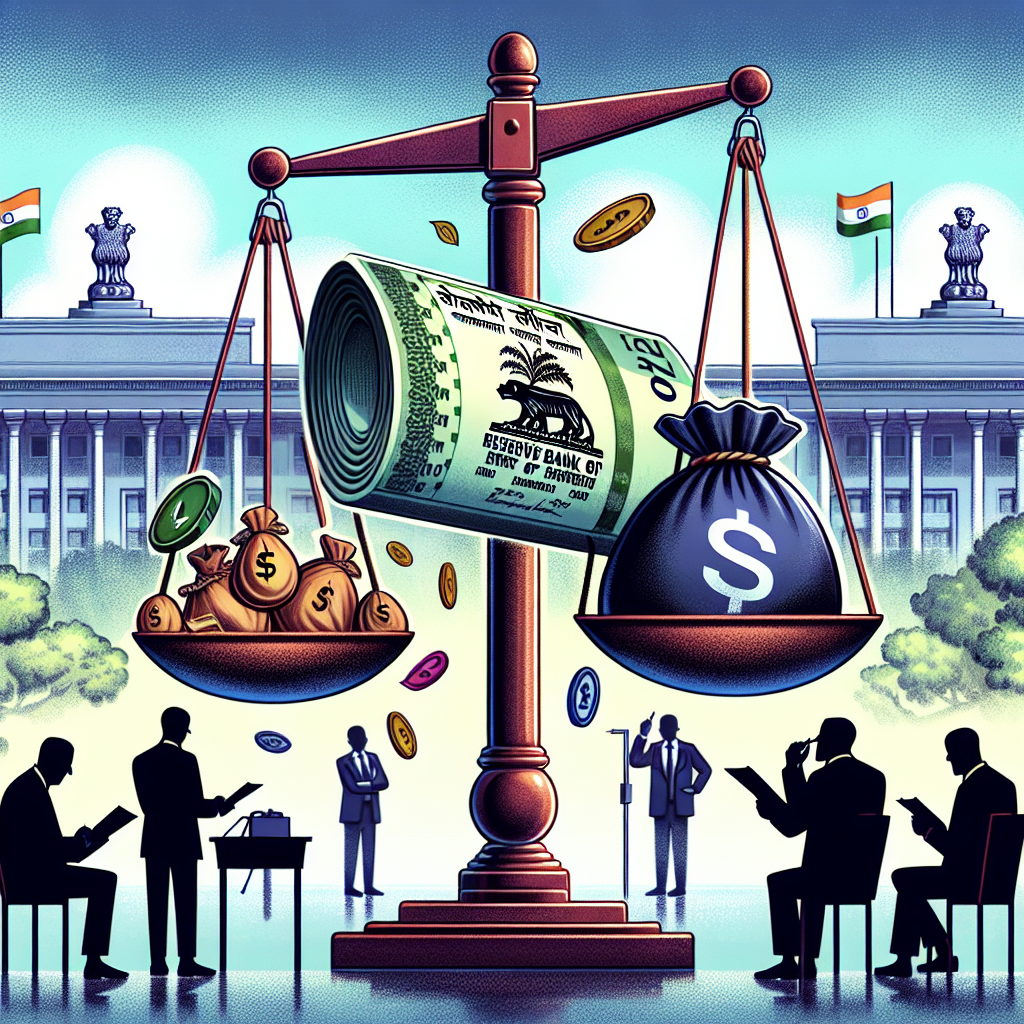Record RBI Dividend: A Fiscal Game Changer for India
Global rating agencies view the RBI's unprecedented Rs 2.1 lakh crore dividend to the Indian government as positive for fiscal metrics. This windfall could influence the new government's fiscal priorities, aiding in deficit reduction or funding new initiatives. The impact hinges on its deployment, affecting India's credit rating and fiscal outlook.

- Country:
- India
Global rating agencies on Friday said windfall of Rs 2.1 lakh crore dividend from the RBI is positive for the country's fiscal metrics and its usage will provide a signal around the new government's fiscal priorities.
The board of India's central bank earlier this week decided to pay Rs 2.1 lakh crore dividend to the government from the profits earned in 2023-24. This is more than double of Rs 1.02 lakh crore that was budgeted by the government.
Fitch Ratings Asia-Pacific Sovereigns Director Jeremy Zook said sustained deficit reduction, particularly if underpinned by durable revenue-raising reforms, would be positive for India's rating fundamentals over the medium-term.
''The use of the dividend -- whether it is saved or used for additional spending -- could provide a signal around the government's fiscal priorities,'' Zook told PTI in an email response.
Fitch has a 'BBB-' rating on India with a stable outlook. In January, the rating agency had affirmed India's rating on robust growth outlook, but had said that weak public finances continue to constraint the rating.
Another rating agency Moody's Ratings said the fiscal impact of much higher-than-expected dividend transfer by the RBI will be determined by what the incoming government decides to do with these additional resources.
Moody's Ratings Senior Vice President Christian de Guzman said on one hand, the government could observe expenditure restraint and facilitate further progress towards meeting its deficit target. This would lower the borrowing requirements that could in turn free up liquidity in the market for other purposes.
He said the government could also deploy these extra funds towards new policies and initiatives.
''The impact of much higher-than-expected transfers from the RBI will ultimately be determined by what the incoming government decides to do with these additional resources,'' Guzman said in an email response to the fiscal impact of RBI dividend transfer.
The general elections are currently underway and a new government would be formed sometime next month. A full budget for 2024-25 fiscal would be tabled in July.
Fitch in its response further said that while higher dividend is supportive of near-term fiscal performance, its one-off nature, however, means the medium-term impact of this windfall on India's consolidation and debt path will be limited.
The larger-than-expected RBI dividend to the government is likely positive for fiscal metrics, helping to ensure that the fiscal deficit target of 5.1 per cent of GDP will be met and could be utilized to lower the deficit beyond the current target, Zook said.
The interim budget presented in Parliament earlier in the year had set a fiscal deficit target of 5.1 per cent of the GDP for 2024-25, down from 5.8 per cent in 2023-24.
As per the fiscal consolidation roadmap, the deficit -- the difference between government expenditure and revenue -- would be brought down to 4.5 per cent by 2025-26.
Another global rating agency S&P Global Ratings on Thursday said the additional dividends from the RBI are around 0.35 per cent of GDP and India can get a 'rating support' over time, if it utilises the windfall dividend to reduce fiscal deficit.
''The additional dividends may not necessarily lead to a full decrease of the deficit, due to potential revenue shortfalls in areas like divestment receipts or additional allocation to expenditures in the final budget. If it does lead to a full decrease of the deficit, we believe it will lead to a faster path of fiscal consolidation that, in turn, will provide rating support over time,'' S&P Global Ratings Analyst YeeFarn Phua had told PTI.
All three global rating agencies -- Fitch, S&P and Moody's -- have the lowest investment grade rating on India with a stable outlook. The ratings are looked at by investors as a barometer of the country's creditworthiness and impact on borrowing costs.
(This story has not been edited by Devdiscourse staff and is auto-generated from a syndicated feed.)
ALSO READ
Modi 3.0 will have policy continuity amid fiscal challenges: Moody's
Claudia Sheinbaum's Fiscal Future: Moody's Awaits Signals
Narrow Majority May Slow India's Economic Reforms, Says Moody's
July budget to offer insights into govt reforms: Fitch Ratings
Mexican Banks Resilient Amid Sovereign Debt Challenges, Says Fitch










